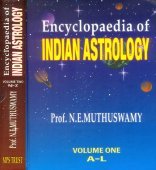Babylon: 3 definitions
Introduction:
Babylon means something in the history of ancient India. If you want to know the exact meaning, history, etymology or English translation of this term then check out the descriptions on this page. Add your comment or reference to a book if you want to contribute to this summary article.
India history and geography
Source: archive.org: Bharatiya vastu-sastra (History)Babylon (kingdom) possibly represents a halfway house of the Aryan race (towards the Indus valley).—According to Havell, “If it be true—as the Russian scholar, Sheftdovich, asserts—that the Kassites, who took Babylon in 1766 B.C. and established a dynasty there, which lasted for 600 years, were Aryans speaking Vedic Sanskrit whose chief god was Sūrya; Babylon must be regarded as a halfway house of the Aryan race in its march towards the Indus valley and some at least of the early Aryan tribes must have acquired, before they entered India, not only the high spiritual culture which is reached in the Ṛg Veda, but also a prolonged experience of the civic arts, including architecture”.
Source: Knowledge Traditions & Practices of India: Trade: A SurveyBabylon was an ancient civilization with whom was commonly traded in ancient India.—Indian teak and cedar reached Babylonian builders, and a Buddhist Jātaka tale mentions trade with the city of Bāveru (Babylon).
Source: Jainworld: Jain History (h)Babylon and India maritime commerce.—In the second storey of the temple of the Moon-god at Ur, rebuilt by Nebuchadnezzar and Nabonidus, Taylor found two rough logs of wood, apparently teak imported into Babylonia from India. The Baveru-Jātaka relates the adventures of certain Indian merchants who took the first peacock by sea to Babylon. J. Kennedy, who worked on this subject concluded that maritime commerce between India and Babylon flourished in the seventh and sixth centuries B.C., especially in the 6th century B.C. Writing on India's ancient trade, Jackson has observed that the Buddhist Jātakas and some of the Sanskrit law-books too tell us that ships from Bhroach and Sopārā traded with Babylon from the eighth to the sixth century B.C.

The history of India traces the identification of countries, villages, towns and other regions of India, as well as mythology, zoology, royal dynasties, rulers, tribes, local festivities and traditions and regional languages. Ancient India enjoyed religious freedom and encourages the path of Dharma, a concept common to Buddhism, Hinduism, and Jainism.
See also (Relevant definitions)
Starts with: Babylon weeping willow.
Full-text: Baveru, Babiru, Babylon weeping willow, Ijakiela, Kassite, Darius, Jyotisha, Sebokht, Satta.
Relevant text
Search found 20 books and stories containing Babylon; (plurals include: Babylons). You can also click to the full overview containing English textual excerpts. Below are direct links for the most relevant articles:
The civilization of Babylonia and Assyria (by Morris Jastrow)
Part XII < [Chapter III - Survey Of The History Of Babylonia And Assyria]
Part VIII < [Chapter III - Survey Of The History Of Babylonia And Assyria]
Part XXI < [Chapter III - Survey Of The History Of Babylonia And Assyria]
Myths and Legends of Babylonia and Assyria (by Lewis Spence)
Chapter XV - The Twilight of the Gods
Chapter VI - The Great God Merodach and his Cult
Significance of the Moon in Ancient Civilizations (by Radhakrishnan. P)
14. Worship of Moon Dieties in Civilizations < [Chapter 3 - History of Civilizations and Moon]
The Chaldean account of Genesis (by George Smith)
Chapter III - Chaldean Legends Transmitted through Bekosus
Chapter X - Fragments Of Miscellaneous Texts
Aspects of Religious Belief and Practice in Babylonia and Assyria (by Morris Jastrow)
Babylonian Religion and Mythology (by Leonard William King)
Related products
